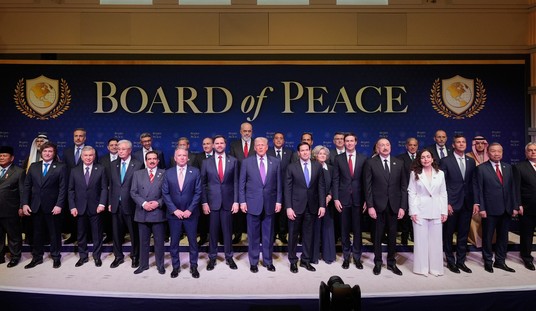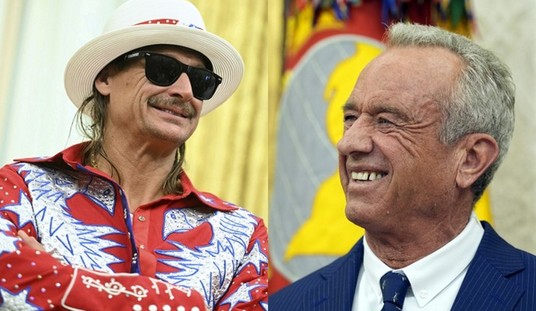
Rep. Alexandria Ocasio-Cortez, D-N.Y., listens during questioning at a House Oversight and Reform committee hearing on facial recognition technology in government, Tuesday, June 4, 2019, on Capitol Hill in Washington. (AP Photo/Jacquelyn Martin)
Advertisement
Former Defense Secretary Donald Rumsfeld famously said in a 2002 news briefing:
[W]e know there are known-knowns. There are things that we know we know. We also know there are known-unknowns. That is to say, we know there are some things we do not know. But there are also unknown-unknowns—the ones we don’t know we don’t know.
In Rumsfeld’s catchy précis of intelligence categories, the *ignorance threshold* runs between known-unknowns and unknown-unknowns; that is, between the batch of things of which a person is somewhat aware and the things of which a person is wholly unaware.
For American college students, the batch of things they don’t know they don’t know seems to be growing.
COLLEGE TEACHES WHAT YOU DON’T KNOW
George Mason University professor Bryan Caplan in his recent book The Case Against Education discusses that most college students remember few testable facts from their four-year degree. Students usually do no better on a test of general knowledge after college than they do at the end of high school. Many do worse.
Even in hard sciences and mathematics, employers know they must effectively train new employees from the ground up. Students rarely leave college with true expertise in anything. Their known-knowns don’t grow very much.
That’s not to say higher education is worthless—far from it. A college education done right stretches a young person’s vistas of known-unknowns exponentially. After a good class on the history of the Middle East, a student may not remember the square mileage of Israel, its chief exports, or its political parties; but he will come away with a sense that the Israeli-Palestinian conflict is immensely complicated, involving two world religions sporting disparate systems of thought and roots that stretch back to biblical times.
Advertisement
He will acquire an intuition about the staggering amount of information outside his direct ken. He will know at least that an expert could spend a career studying, analyzing, and understanding certain topics.
Robust introductions to sciences, mathematics, philosophy, theology, literature, history, and languages give a college graduate a sense of the complexity and vastness of knowledge. He develops a respect for expertise and—one hopes—a drive to develop an expertise himself, as well as a lifelong fascination with pushing the envelope of his known-unknowns by reading periodicals and books on unfamiliar topics.
A college graduate evinces far more humility and wonder than a high schooler, and he jumps to conclusions less readily. A person who possesses a sense for what he does not know can think for himself, expand himself, and weigh information.
MISEDUCATION, UNKOWN-UNKNOWNS, AND THE CONGRESSWOMAN FROM NEW YORK
A poorly educated person—whether he holds a college credential or not—lives in the world full of unknown-unknowns. He lacks breadth, and he has little sense of what he does not know. While he may admire expertise in the abstract, like some distant power, he has no sense of the depth to which expertise in a subject may run. He risks either worshiping expertise like some pagan god or distrusting expertise as something fake or threatening.
Often, he overestimates what he knows, and he gives his singular experiences and opinions disproportionate weight. He confuses confidence of delivery with knowledge, taking political advice from Robert De Niro and medical advice from Gwyneth Paltrow. Convincing him of his narrowness takes great effort, and his low awareness of his limits retards personal expansion.
Advertisement
Sometimes a person below the ignorance threshold presents a danger to her society, too.
New York Representative Alexandria Ocasio-Cortez epitomized this danger when she tossed her support behind the anti-Israel Boycott, Divestment, and Sanctions (BDS) movement, seemingly oblivious to its anti-Semitic pedigree and chilling echoes of the Nazi Judenboykott of the 1930s.
Rep. Ocasio-Cortez demonstrates no pattern of anti-Semitism in her short career; so the most charitable explanation for her promotion of BDS points to an unwitting mistake born of ignorance. That is, she possessed so little general understanding of Islam and Judaism, Middle East politics, modern history, and the categorical difference between economic warfare and nonviolent resistance to doubt BDS’s prima facie claim of “social justice.”
The past masters of politics in her own party could have warned her about the iceberg beneath the surface; but she manifestly did not consult their expertise. One can only hope she has not emailed her banking details to a Nigerian prince attempting to move his money out of his country.
THE FRUITS OF IGNORANCE AMONG GRADUATES
Anyone who interacts with young university graduates on a regular basis knows that Rep. Ocasio-Cortez is no outlier. More and more American graduates display symptoms of falling below the ignorance threshold in whole genera of knowledge and remaining there, despite their expensive sheepskins.
Advertisement
Public demonstrations of simplistic thinking abound—in particular the black-and-white outlook, the tu quoque fallacy attacking hypocrisy rather than arguments, and the notion most Western historical figures were benighted racists.
Students and recent graduates seem interested in a simple answer—now—not the intricacies of stubborn social problems nor the complexity of human beings. What’s not right is just wrong and should have been fixed already; and whoever isn’t perfectly consistent is wrong and should be yelled at.
That’s a lot of *wrong*, a frustrated and empty worldview. Subtlety and curiosity seem to have deteriorated, replaced by the impudence and rush to judgment that typify life below the ignorance threshold.
As educated young adults in the West are living through the greatest material abundance in human history, they also suffer through a hideous impoverishment of ideas and ideals. A high-concept blend of scientific materialism and post-modern deconstruction has convinced a generation entire that religion is silly; philosophy is silly; history is just rationalization of oppression; everyone but the fanatical revolutionary is a hypocrite; all truth is relative; and civilization is merely a vaporous construct.
This self-dealing inanity allows a great number of young people to rebuff any attempt to goad them above the ignorance threshold and acknowledge the vast, gray, complex, and at times confusing world of known-unknowns. Students today often resemble a smuggler caught with drugs in his car:
Advertisement
These old ideas don’t belong to me. No idea how they got here. this society isn’t even mine, I’m just borrowing it. I’m not talking to you. Speak to my representative, critical-theory professor Dr Wakanda Guevara-Chavez.
They are wrapped tightly in interwoven denial and nihilism, what might be called *denihilism*.
The wretched poverty of ideas and ideals offers a compelling explanation for the statistical popularity of Marxism and socialism among young graduates today. They call for The Revolution not to find bread to feed the body—which they have in stacks—but bread to nourish the mind and soul, which are starving in agony. Marxism promises Revelation without much reading and salvation without sacrificing simplicity.
“Here’s an alphabetical card with buzzwords on it, from antiracist through rhetorical violence to xenophobe. Keep repeating them, and utopia will unfurl shortly.”
The generation who witnessed tens of millions die from misguided nouveau communist and fascist experiments are all gone. Their grandchildren lack any intuition for how savagely the unconstrained, ignorant, and self-righteous human can treat his fellows.
Higher education has utterly failed Western society in that regard. When a supposedly educated generation’s unknown-unknowns are so vast as to entirely blanket knowledge about the dark side of human nature–the brutality lurking in the untutored human heart–hairs on necks ought to stand on end. The West would do well to correct this unawareness quickly, before political events do so the hard way.
Advertisement













Join the conversation as a VIP Member